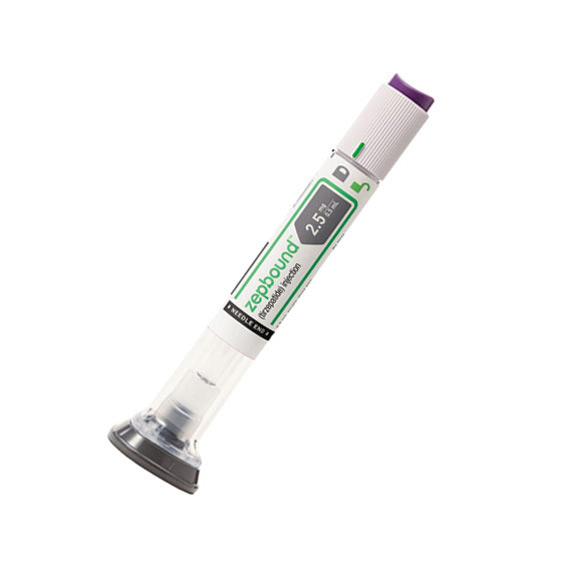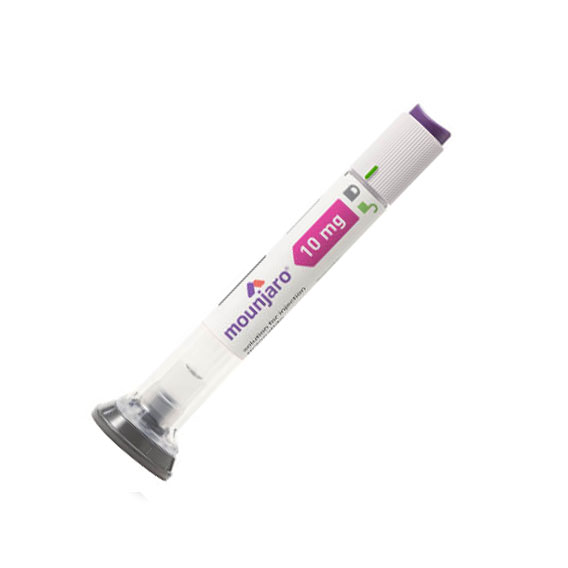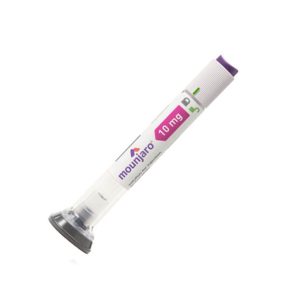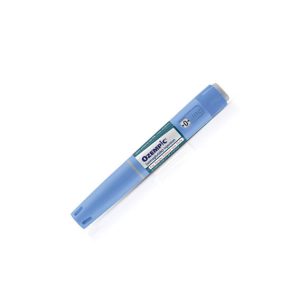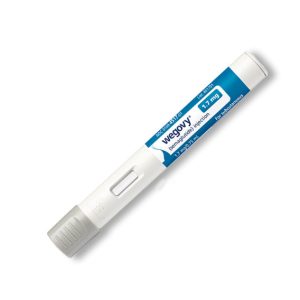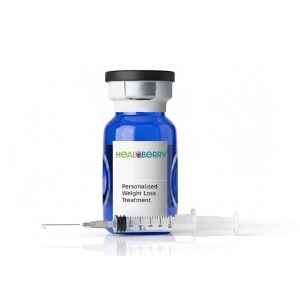Zepbound®
Benefits of Zepbound™
-
Powerful weight loss: Helps patients lose up to 22.5% of body weight in clinical trials
-
Dual hormone action: Activates both GIP and GLP-1 receptors for enhanced appetite control and metabolic effects
-
Reduces hunger and cravings: Promotes a sense of fullness and reduces overall food intake
-
Improves quality of life: Weight loss may lead to better mobility, mood, energy, and sleep
-
Supports metabolic health: Lowers cholesterol, triglycerides, and blood pressure
-
May reduce risk of type 2 diabetes and improve insulin sensitivity
-
Clinically proven results: Outperforms many existing weight loss medications in trials
-
FDA-approved for chronic weight management in adults with obesity or overweight + weight-related condition
Why Zepbound?
- Lose 20% of your body weight on average in 1 year.
- New FDA-approved medication for weight loss
- Targets two hormone receptors (GLP-1 and GIP) to maximize weight loss
- Description
- What is the FDA-approved use of Zepbound?
- What should I tell my provider before using Zepbound?
Description
What is Zepbound® ?
Zepbound® uses the same active ingredient (tirzepatide) as Mounjaro®. It’s a dual-action GLP-1/GIP that is approved by the FDA for people with obesity BMI ≥30, or overweight BMI ≥27 plus a weight-related condition, along with diet and exercise changes.
Zepbound is used along with a reduced-calorie diet and increased physical activity for chronic weight management in adults with an initial body mass index (BMI) of:
-
30 kg/m^2 or greater (obesity) or
-
27 kg/m^2 or greater (overweight) in the presence of at least one weight-related comorbid condition (e.g., hypertension, dyslipidemia, type 2 diabetes mellitus, obstructive sleep apnea, or cardiovascular disease).
Limitations of Use:
-
Zepbound should not be used in combination with other tirzepatide-containing products or any other GLP-1 receptor agonist.
-
The safety and efficacy of coadministration with other products for weight management have not been established.
-
Zepbound has not been studied in patients with a history of pancreatitis.
Who should not use Zepbound?
Do not use Zepbound if:
-
You or any of your family have ever had a type of thyroid cancer called medullary thyroid carcinoma (MTC) or if you have an endocrine system condition called Multiple Endocrine Neoplasia syndrome type 2 (MEN 2).
-
You have a known allergic reaction to Zepbound.
-
Zepbound has certain drug interactions. It’s important to tell your provider all of the medications you are currently taking, including prescription, over-the-counter medications, vitamins, and herbal and dietary supplements.
Some medications to watch out for include:
-
Medications for diabetes: Medications used to treat type 1 or type 2 diabetes, including insulin or sulfonylureas (such as Amaryl or Glucotrol XL)
-
Other oral medications: Zepbound causes a delay in gastric emptying, so it has the potential to impact the absorption of medications that are taken by mouth at the same time. Your provider can guide you on how to schedule your medications.
-
Hormonal birth control: If you are using an oral hormonal contraceptive (birth control), Zepbound may decrease its efficacy, especially after the first dose. Switch to a non-oral contraceptive method or use a barrier method of contraception for 4 weeks after starting Zepbound and for 4 weeks after each dose escalation, until you reach a maintenance dose.
-
-
Other GLP-1 medications: Including Mounjaro, Wegovy, Ozempic, Saxenda, Victoza, Byetta, or Bydureon. These medications should not be taken with Zepbound.
-
Other products for weight loss: Including dietary supplements
-
It’s important to share your entire medical history with your provider. In particular, tell your provider if you have a past history of:
-
Type 1 or type 2 diabetes
-
Thyroid cancer
-
Gastrointestinal disease
-
Pancreatitis
-
Kidney disease
-
Diabetic retinopathy
-
Depression
-
Suicidal thoughts or behavior
-
-
Tell your provider if you are pregnant, planning to become pregnant, or breastfeeding.
-
If you are pregnant: Zepbound should not be used during pregnancy. Based on animal studies, there may be potential risks to an unborn baby from exposure to Zepbound during pregnancy. There is no benefit to weight loss during pregnancy and it may cause harm to the unborn baby.
-
If you are a female reproductive potential: Zepbound may reduce the efficacy of oral hormonal contraceptives. Switch to a non-oral contraceptive method, or add a barrier method of contraception for 4 weeks after starting medication and for 4 weeks after each dose escalation until you reach a maintenance dose.
-
If you are breastfeeding: It is not known if Zepbound passes into breast milk. Talk to your provider first about the benefits and risks of using Zepbound while breastfeeding.
-
-
Pregnancy registry: There will be a pregnancy exposure registry that monitors pregnancy outcomes in women exposed to Zepbound during pregnancy. Pregnant patients exposed to Zepbound and healthcare providers are encouraged to contact Eli Lilly and Company at 1-800-LillyRx (1-800-545-5979).
Withholding or providing inaccurate information about your health and medical history in order to obtain treatment may result in harm, including, in some cases, death.
What are the most serious side effects that I or a caregiver should monitor for when taking Zepbound?
If you are experiencing a medical emergency, call 911 or seek immediate medical attention.
These serious side effects are rare, but can occur with Zepbound. You or a caregiver should carefully monitor for these side effects, especially in the beginning of treatment and with dose changes.
-
Thyroid C-Cell Tumors: In rats, Zepbound caused a dose-dependent and treatment-duration-dependent increase in thyroid C-cell tumors. It is unknown whether Zepbound causes thyroid C-cell tumors in humans. Zepbound is contraindicated in patients with a family history of medullary thyroid cancer (MTC) or in patients with Multiple Endocrine Neoplasia syndrome type 2 (MEN 2). Tell your provider if you get a lump or swelling in your neck, hoarseness, trouble swallowing, or shortness of breath. These may be symptoms of thyroid cancer.
-
Severe Gastrointestinal Disease: Zepbound is associated with gastrointestinal side effects, such as nausea, diarrhea, vomiting, constipation, and stomach pain, and can sometimes be severe. It hasn’t been studied in patients with severe gastrointestinal disease and isn’t recommended in these patients. The majority of nausea, vomiting, and/or diarrhea events occurred during a dose increase and decreased over time.
-
Acute Kidney Injury: Gastrointestinal side effects of Zepbound like diarrhea, nausea, and vomiting may cause a loss of fluids (dehydration), which may cause kidney problems if dehydration is severe. It is important for you to drink plenty of water to help reduce your chance of dehydration.
-
Acute Gallbladder Disease: Zepbound, other GLP-1 receptor agonists, and weight loss are associated with an increased chance of acute gallbladder disease. Tell your provider right away if you have pain in your upper stomach, yellowing of skin or eyes (jaundice), fever, or clay-colored stools.
-
Inflammation of Pancreas (Acute Pancreatitis): Monitor for signs of acute pancreatitis, including severe abdominal pain that does not go away, sometimes radiating to the back, with or without vomiting.
-
Allergic Reactions: Stop using Zepbound right away if you experience symptoms of a serious allergic reaction, including swelling of your face, lips, tongue or throat, severe rash or itching, very rapid heartbeat, problems breathing or swallowing, or fainting or feeling dizzy.
-
Low Blood Sugar (Hypoglycemia): Zepbound lowers blood glucose. It can cause too low blood sugar in patients with type 2 diabetes who also take another glucose control medication. Monitor your blood sugar and watch out for signs of too low blood sugar such as dizziness, blurred vision, mood changes, sweating, or fast heartbeat.
-
Diabetic Retinopathy Complications in Patients with a History of Diabetic Retinopathy: Rapid improvement of glucose control has been associated with temporary worsening of diabetic retinopathy. Tell your provider right away if you experience changes in vision.
-
Suicidal Behavior and Ideation: You should pay attention to any mental health changes, especially sudden changes in your mood, behaviors, thoughts, or feelings. Call your healthcare provider right away if you have any mental changes that are new, worse, or worry you.
-
Never Share a Pen: Pen-sharing poses a risk of infection.

